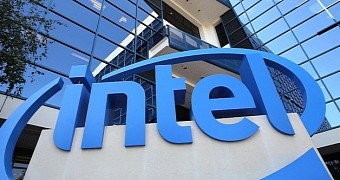The American chip manufacturing giant has recently announced that it plans to invest $50 million in researching quantum computing together with a Dutch University.
Attempting to build a quantum computing development alliance together with Delft University of Technology in the Netherlands and TNO (Toegepast Natuurwetenschappelijk Onderzoek) or, in human language, the Dutch Organization for Applied Research, Intel plans to build the sort of quantum computing that could overcome the issues of today's semiconductor fabrication process at quantum-scale level.
Apparently, when building quantum semiconductors, the electronic circuits start to exhibit quantum effects like superposition and entanglement. Semiconductor nano-rings that hold trapped electrons are the building blocks of possible quantum computers. However, the trapped electrons inside such rings show the strange phenomena of entanglement and superposition.
Intel joins an ongoing trans-corporate effort of developing quantum computers
This sort of behavior leads to the inability of the system to maintain a predictable output and even measuring the state of the system such as checking whether the switch is on or off, actually changes what is being observed.
Classical computers cannot easily conduct an array of quantum systems when their predictability is low. However, this has not discouraged companies to extensively fund quantum technologies and prepare the advent of quantum computing.
Basically, quantum computers use qubits or quantum bits that can exist in multiple states simultaneously, offering the potential of computing a huge number of calculations all at one, and thus the processing results come up much faster.
To date, scientists have harnessed quantum systems to represent qubits in many different ways, ranging from defects in diamonds, to semiconductor nano-structures or tiny superconducting circuits.
Although applications to fight counterfeiting diamonds using quantum physics are being used, there is currently a very limited application in quantum computing, until quantum semiconductors can be properly built and the electrons harnessed.
According to phys.org Intel wants to invest in building quantum computers to develop intricate simulations and large-scale financial analysis together with chemical pattern simulations in order to help scientists develop better drugs

 14 DAY TRIAL //
14 DAY TRIAL //